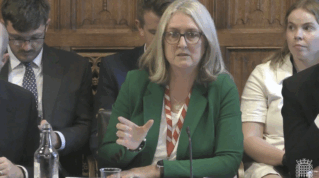This week the government published its plans for a ‘devolution revolution’, setting out how it intends to ‘unleash power from Whitehall back into communities that know their areas best’. But is what we’re getting radical enough?
Having spent the past three years working in a combined authority, I have seen first-hand the transformational impact that place-based approaches to employment and skills can have in addressing the skills needs of people, places and local businesses. The prospect of both deeper devolution to existing mayoral areas and of wider devolution to new areas of the country is therefore extremely welcome.
Indeed, I would argue that devolution – alongside a renewed focus on understanding and meeting sector skills needs – is critical to the delivery of the government’s growth ambitions, and particularly to ensuring that the benefits are felt across all parts of the country.
So, are we on the verge of a devolution revolution for skills?
A leap forward
On a positive note, the commitment to full devolution coverage of England provides an exciting opportunity to extend flexibilities that have previously been enjoyed in areas such as the West Midlands to other parts of the country.
Alongside this, measures to support greater collaboration between strategic authorities should also improve the sharing of effective practice and mitigate some of the risks of fragmentation that employers who work across national and regional boundaries are increasingly concerned about.
The removal of ringfences from Skills Bootcamps and Free Courses for Jobs funding and the introduction of integrated settlements for some mayoral areas is also good news. This will provide valuable flexibility to direct funding towards addressing local needs and supporting skills development for regional growth sectors, both of which should deliver better value for money and improve outcomes for learners and business alike.
Perhaps most exciting of all is the opportunity to align skills investment with growth funding, with employment support and with local transport services to ensure that more adults can be trained, supported and empowered to access good jobs in their local area.
Bolder moves required
But to me, it still feels like we are taking an incremental approach to what the centre is willing to give away, rather than a more holistic and strategic approach to delivering the step change that is needed for skills to ignite growth across the country.
The move towards aligning local skills improvement plans (LSIPs) with the sector skills priorities in local growth plans is welcome. However, I am not convinced that joint ownership between strategic authorities and employee representative bodies (ERBs) will achieve this.
Instead, I would have liked to have seen LSIPs devolved to strategic authorities as a vital enabler to their statutory duties in relation to local growth plans, alongside a recognition of the valuable role that sector skills bodies can play in supporting local areas to understand and meet sectoral needs.
I was also disappointed to see no further influence for mayors around wider skills investment. At present, the mayor of the West Midlands has influence over just 10 per cent of overall skills spending in the region. However effectively this is spent, it is inconceivable that he will be able to address the persistent skills challenges facing the region with such partial levers.
I expect Richard Parker and other mayors to continue to argue for a greater role alongside providers and employers in shaping the 16-19 skills offer for their regions as well as for a strategic role in shaping the new growth and skills levy and in creating more apprenticeship opportunities, particularly for young people.
So it seems that the English devolution white paper is more evolution than revolution. It’s a step in the right direction, but a smaller step than I was hoping to see. In this context, I am encouraged that the proposals are described as a “floor on our ambition, not a ceiling”.
The challenge now will be to demonstrate the impact of what this step can achieve, and then use it to make a case for the next. This is a challenge – and an opportunity – that we must all come together to embrace.
Having recently taken up a new role at Skills Federation, it has become clearer to me that while mayors and strategic authorities are best placed to understand the particular needs of their local areas, many of our sector skills challenges are national as well as local.
Overlaying the expertise of sector skills bodies onto that of places, will now be vital if we are serious about creating a coherent skills eco-system that works for everyone, about helping reduce duplication of effort across regions and about ensuring the development and delivery of effective solutions to meet shared skills needs.

















Your thoughts